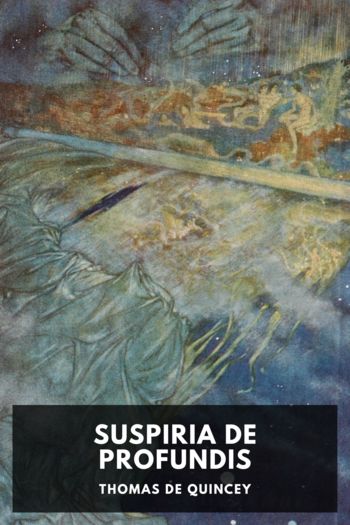Suspiria de Profundis by Thomas De Quincey (urban books to read .TXT) 📕

- Author: Thomas De Quincey
Book online «Suspiria de Profundis by Thomas De Quincey (urban books to read .TXT) 📕». Author Thomas De Quincey
Description
The Suspiria is a collection of prose poems, or what De Quincey called “impassioned prose,” erratically written and published starting in 1854. Each Suspiria is a short essay written in reflection of the opium dreams De Quincey would experience over the course of his lifetime addiction, and they are considered by some critics to be some of the finest examples of prose poetry in all of English literature.
De Quincey originally planned them as a sequel of sorts to his Confessions of an English Opium-Eater, but the first set was published separately in Blackwood’s Magazine in the spring and summer of that 1854. De Quincey then published a revised version of those first Suspiria, along with several new ones, in his collected works. During his life he kept a master list of titles of the Suspiria he planned on writing, and completed several more before his death; those that survived time and fire were published posthumously in 1891.





Comments (0)